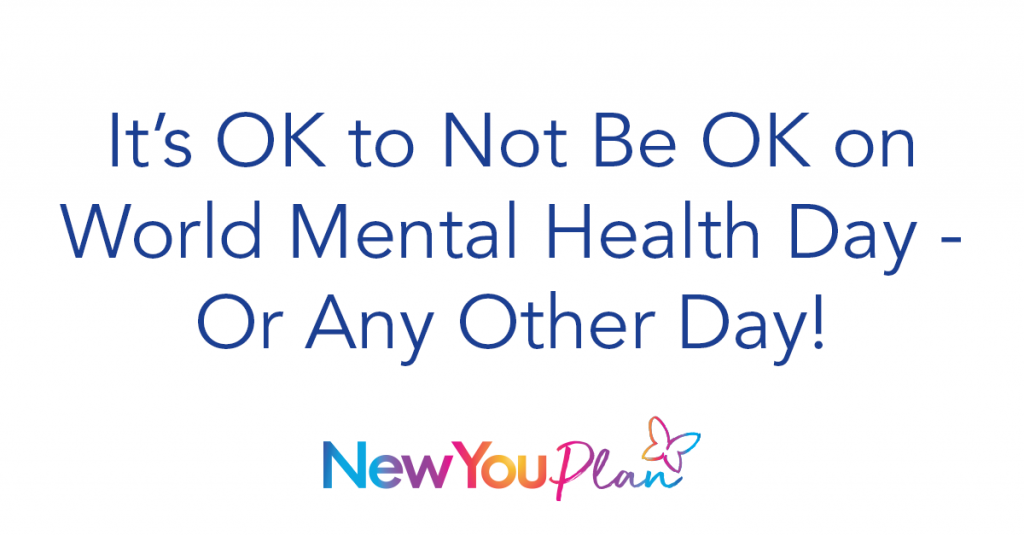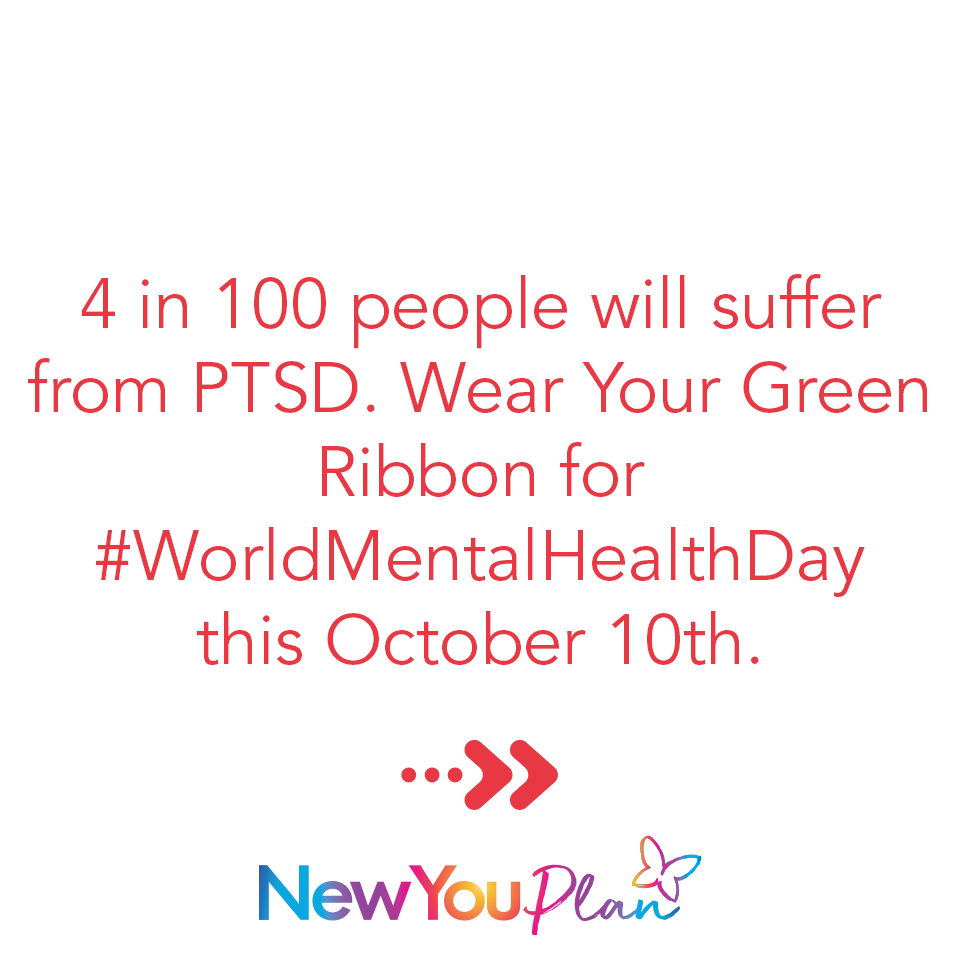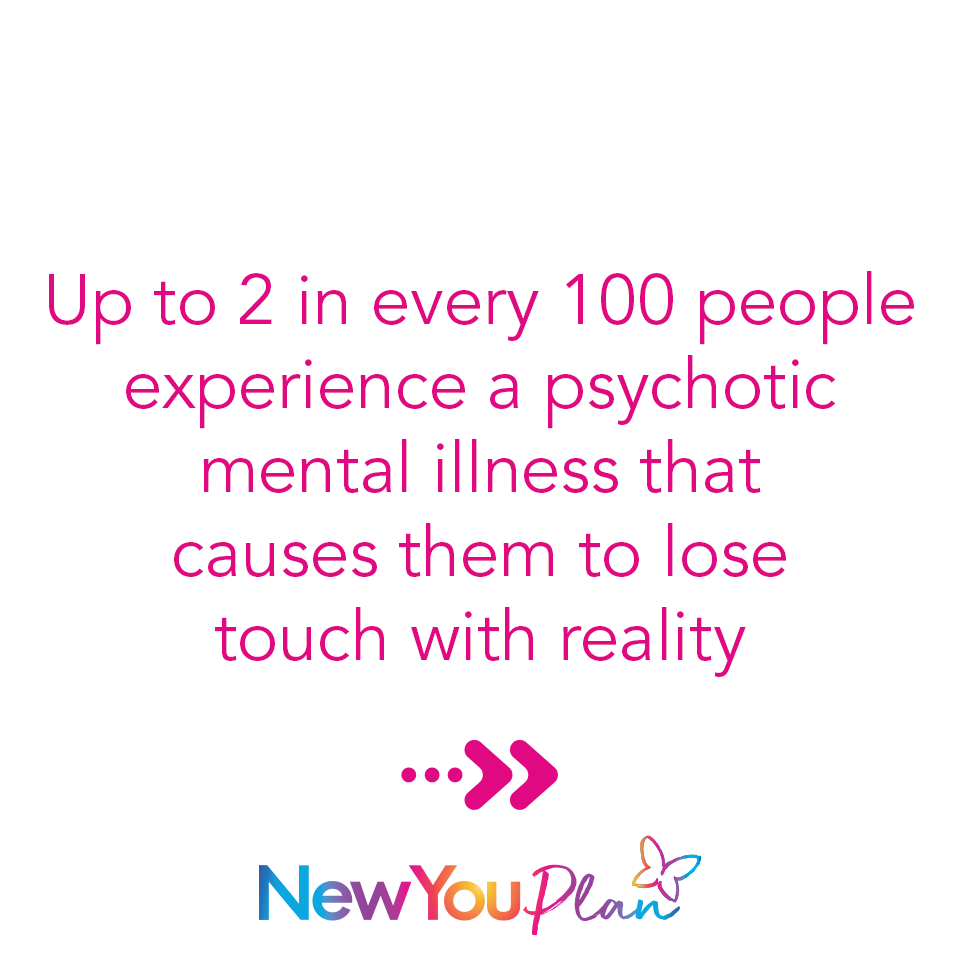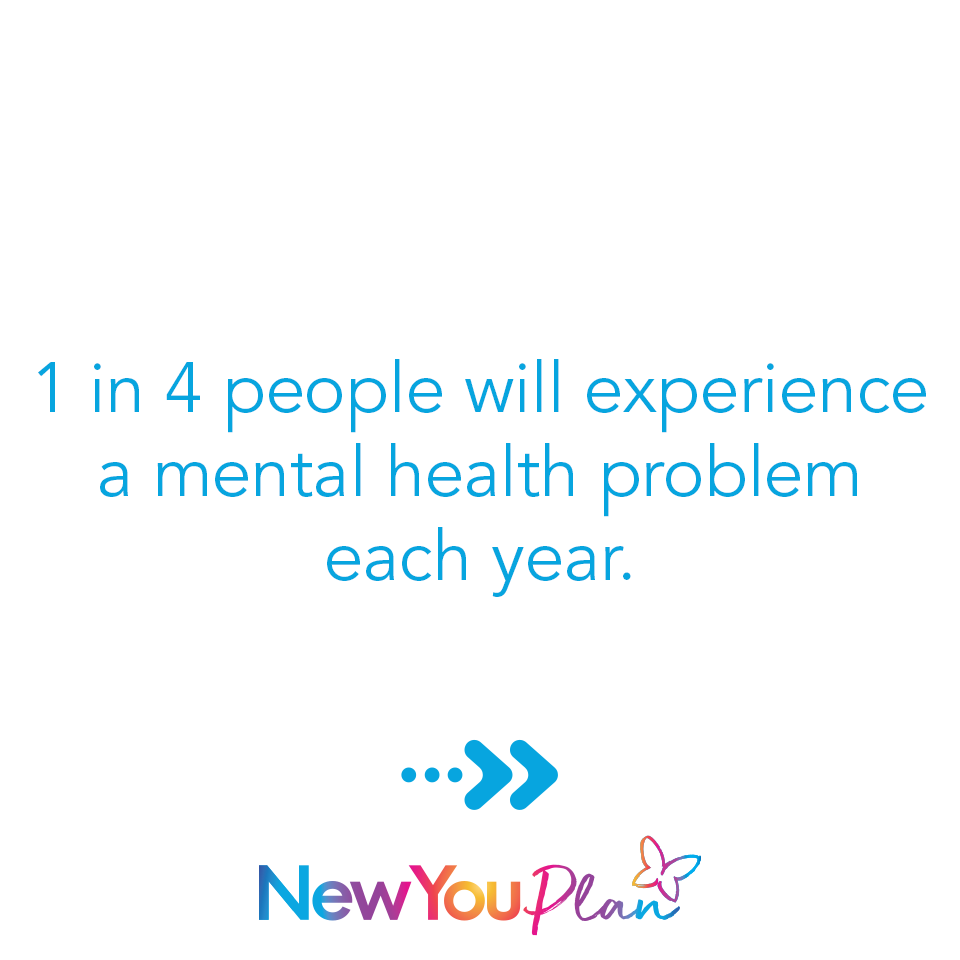
It’s OK to Not Be OK on World Mental Health Day – Or Any Other Day!
Here at New You HQ on October 10th, we will all be wearing our green ribbons for World Mental Health Day.
If you’ve not heard of World Mental Health Day, it’s a day for global mental health education, a day to raise awareness of mental health issues around the world and a day to advocate against the persistent social stigma of poor mental health.
Believe it or not, World Mental Health Day was first celebrated in 1992, yet nearly 30 years later a stigma still exists. Not only that, proper care and support is still underfunded and the type of treatment available is often determined by where you live
This year’s World Mental Health Day slogan is
‘Mental health care for all: let’s make it a reality’
which we’re sure you can all get on board with.

So What is Meant by Mental Health?
Mental health is sometimes referred to as wellbeing or emotional health and it is just as important as physical health.
There are two types of mental health, neurotic and psychotic.
Neurotic symptoms are severe forms of what are commonly ‘normal’ emotions and can be diagnosed as anxiety, depression or panic attacks (plus many others).
Psychotic symptoms, which are less common, disrupt a person’s view of reality which can cause hallucinations of varying forms. You may have heard of such psychotic conditions as schizophrenia or multiple personality disorder.
Whether neurotic or psychotic, World Mental Health Day is celebrated to remind you that poor mental health can affect how you perceive, behave and feel. To suffer in this way is not something to be ashamed of, it’s not a sign of weakness. It is something to be treated by a professional – just like a broken leg or diabetes.
Just like we are all individuals, no two people suffering from their mental health will feel the same. Neurotic symptoms are commonly socially dismissed as having a bad day but can have a huge impact on how someone can live their life and last a long time or even a lifetime. The reason for this is that even in 2021, people are afraid to share their mental health problems with others or professionals because of the stigma. Sadly in avoiding seeking help, sufferers don’t get diagnosed or referred for treatment if it’s available.
Mental health is something we should all be concerned about as it can affect anyone at any time. Friends, family or even yourself. It’s non-discriminatory.

How Do You Know If You’re in Good Mental Health?
Commonly, you are classed as having good mental health if you can:
- Cope with life and manage uncertainty or change.
- Learn, whether it’s education or life skills.
- Understand and make the most of your future and potential.
- Form, manage and maintain relationships with your family and others.
- Manage, express and feel all the range of emotions.
It’s important to remember that just because you don’t have a diagnosed mental health problem, it doesn’t mean you have good mental health. But the good news is, there are ways in which you can look after your mental health to safeguard yourself.
How To Look After Your Mental Health
- Keep Yourself Active – you’ve probably heard it before, but moving about more boosts your self-esteem and is great for your mental health!
- Get Some Fresh Air – Even centuries ago our ancestors understood the benefit of fresh air. Getting outside for a walk or tending to your garden gets those good hormones going!
- Take Time for Yourself – Self-care is something we’re hearing more and more about and it’s so important. Take time to do something you enjoy that will make you feel good, and take a break regularly because you’re not superhuman!
- Take Time to Talk – Talk about your feelings, say if you’re struggling, keep in touch with friends and loved ones, communicate if you need help (It’s OK) and check in on that neighbour you’ve not seen over the fence in a while. Talking can be a stress buster and caring about others releases good mood chemicals.
- Love Who You Are – Appreciate all that you have and all that you are. It’s ok to want to make changes and strive for something different, but remember that you are awesome and you are loved just as you are.

And finally…
Are There Links Between Poor Mental Health and Being Overweight?
Studies have shown that poor mental health can lead to obesity and obesity can lead to mental health issues. Studies have also shown that people who suffer from mental health disorders such as depression and anxiety are more likely to gain weight over time than those in good mental health.
All is not lost though, and nothing is set in stone. Here at New You, we welcome all our customers like family and understand how important your mental health is. And this is why we put so much emphasis on working on your mindset when it comes to weight loss and achieving your transformation. Losing weight can come with all sorts of trials and emotions and we want to make sure you’re able to work through them and deal with them in the right way by providing you with a qualified mindset coach.
We encourage all of our customers to take advantage of Pascale’s free mindset sessions to keep their mental health in great shape and to ensure their transformation is successful for both body and mind.
Look after yourself and look after your mental health. Remember, It’s OK to not be OK and it’s more than OK to ask for help. Don’t suffer in silence.





